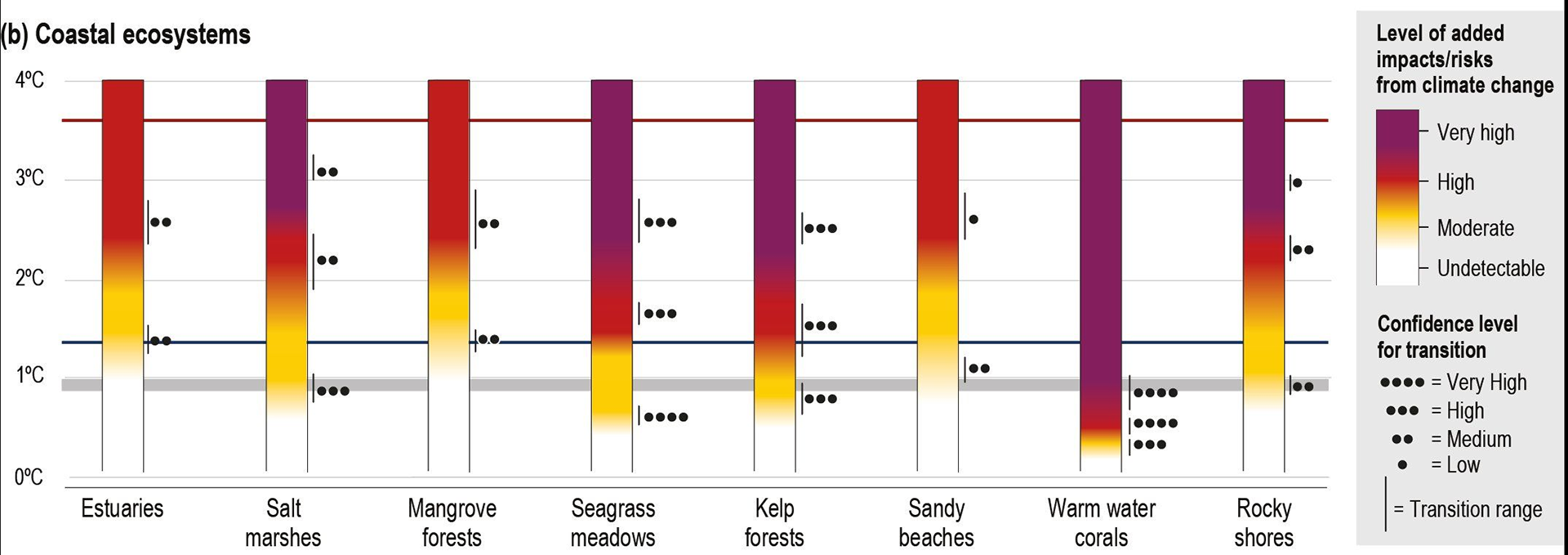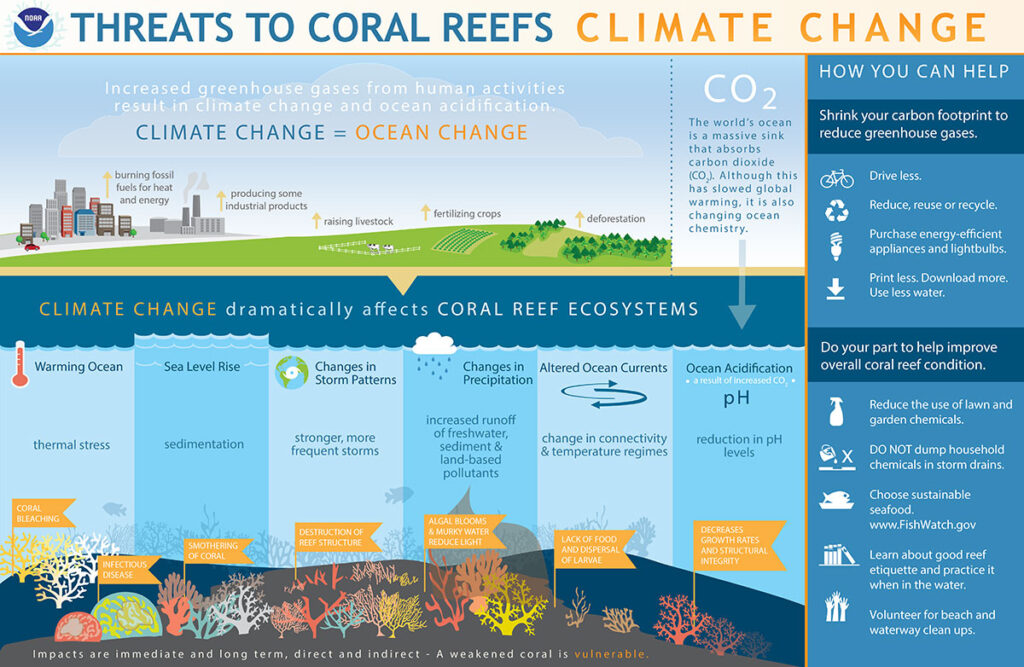Global Climate Change
There is strong consensus that the world is experiencing climate change, with the pace accelerating and much of this shift attributed to human activities, including fossil fuel combustion, deforestation, and agricultural practices.
Although studies suggest that corals may be able to thermally adapt or acclimatize, this is challenged by both the speed of increase in temperature and the erratic nature of thermal events brought on by climate change. According to the 2020 IPCC report, projections indicate an increase in atmospheric temperatures of approximately 2.5°C by 2100. The report also highlights that the current temperature rise (>1°C) experienced by coral reefs poses a severe threat to their survival. The implications of these projections raise significant concerns regarding the future of coral reefs on a global scale.

Risk scenarios for coastal ecosystems based on observed and projected climate impacts. ‘Present day’ (grey line) corresponds to the 2000s, whereas the different greenhouse emissions scenarios, RCP2.6 (blue line) and RCP8.5 (red line), correspond to 2100. Multiple climate hazards are considered, including ocean warming, deoxygenation, acidification, changes in nutrients, particulate organic carbon flux, and sea-level rise. Source: Bindoff et al. 2019
Managing these threats requires global concerted action on climate change, however local management can play an important role in mitigating the severity of the threats and in assisting the potential for reef recovery.

Climate change poses a major threat to coral reefs. Source: NOAA